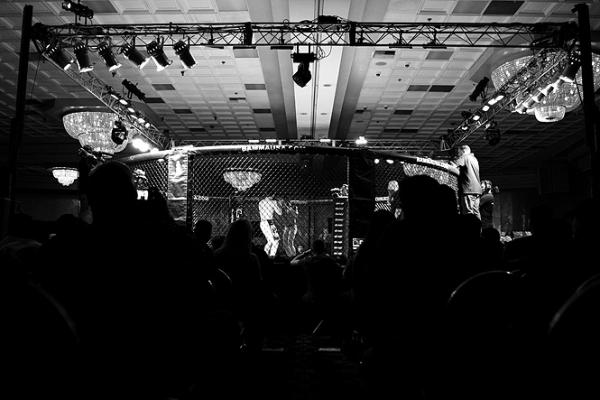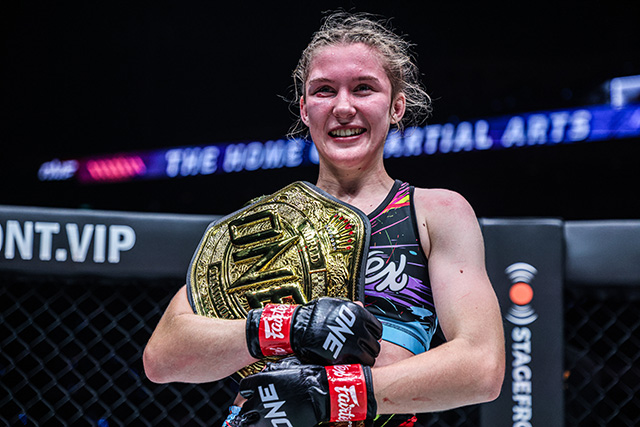Brazilian Athletic Commission Co-Chair Rafael Favetti Outlines Plan for Regulatory Body

Newly created and based on the Nevada Athletic Commission, the Brazilian Athletic Commission faces challenges that go beyond regulation and the standardization of rules and extend to the dissemination and growth of mixed martial arts.
Chaired by Giovanni Biscardi and Rafael Favetti, the committee has already taken its first steps and aligned itself with some prominent experts. Referee Mario Yamasaki has been named director of arbitration, and Marcio Tannure has been tapped as medical department chief.
Advertisement
Sherdog.com: As a respected lawyer in Brasilia, the federal capital of Brazil, you served as vice minister of justice under President Luiz Inacio Lula da Silva. How did you get connected to MMA and how did you become involved with the Brazilian Athletic Commission?
Favetti: I was born in Curitiba and grew up and lived there when Chute Boxe was at its height in Pride [Fighting Championships]. I think MMA is a part of any person who is born in Rio [de Janeiro] or Curitiba. The idea of the commission first came up when I met with Biscardi, a lawyer from Rio. We agreed that the sport needed a commission to regulate it in Brazil, just like it has in the United States, so we founded the Brazilian Athletic Commission and modeled it after the commissions in the U.S., particularly the Nevada Athletic Commission. We have a legal framework in Brazil, a framework of laws that’s a bit different than the U.S. structure. In Brazil, the organizations and associations responsible for regulating the sport are much closer to the event organizers than the athletic commission. As a result, we’re the first athletic commission to be created in Brazil, and with guidelines that mirror those of the Nevada Athletic Commission, our objective is to inspect and audit events. We feel we’re extremely prepared because our model is based on the Nevada commission, so there’s not going to be much difference between the inspection and professionalism of the events here and the events in the U.S. The basic difference is that the Nevada commission is an agency of the state, while we’re a national agency. Aside from that, the level of professionalism and transparency are basically the same.
Sherdog.com: How will you work on doping and on the problems with judging?
Favetti: We have two things in place to deal with the issue of doping: the commission in Nevada and the IMMAF (International Mixed Martial Arts Federation), the international organization to which we are affiliated. Both dictate the rules of doping for MMA, and we also have the WADA (World Anti-Doping Agency), which dictates the rules for all Olympic sports. We always keep an eye on both; never differing from the Nevada Athletic Commission and especially the IMMAF on doping is one of the most important things we can do in relation to our sport. MMA has a greater level of unpredictability than any other sport; it’s different from boxing, karate and other sports. Sometimes you have a guy who’s an expert on the ground, and he can lose a fight because of takedown attempts or he can lose the fight standing. A lack of predictability is one of MMA’s defining traits, so the concern over doping is even greater. As far as judging goes, we are concerned with having a better selection process and doing a better job in terms of backgrounds. The sport of MMA is still in its formative stages. The more traditional judges do not have MMA backgrounds, and I can see how they make the mistakes they make. Those mistakes will certainly decrease when our commission starts training our judges in MMA. Maybe we’ll no longer see the gap that exists with judges who move to MMA without proper training because our graduates will be here. I think we have the right conditions with MMA in Brazil, and I think we can export referees from Brazil in a short time.
Sherdog.com: Can you discuss what the Brazilian commission has already implemented?
Favetti: Our major concern was putting the proper structure in place to get started and to develop all protocols: protocols for working UFC events, inspector protocols, medical protocols and referee protocols. In addition, were trying to perfect what would be most suitable for Brazil because I’m sure some of the things that work in the U.S. and other countries would not work here. We’ll have to adjust and tailor things for what’s best for Brazil. We’ve been able to shadow these past UFC events and just watch the way they work without getting our hands dirty. We started out shadowing in Belo Horizonte and have already begun designing our protocols; in Rio de Janeiro, we put together a team of inspectors and did all the training. Marcio Tannure handled the medical side of it -- which included doping and safety -- along with the cutmen, for whom we had to make some adjustments because when you’re sterilizing material within the law, some problems can arise. Marcio can speak to the technical issues better than I can. We’ll improve slightly with each new event, step by step, and by the end of the year, we’ll have our team formed. We’re developing referee courses with Mario, training for those who are not yet referees and improvement classes for those who are. Mario knows exactly how they work. We want to transform this into a national structure. We will not be exclusive to the UFC. Because we have a structure very similar to Nevada, we want to absorb as much knowledge about the way they do things and implement it in our country.
Sherdog.com: Michael Bisping argued that Vitor Belfort won their fight at UFC on FX 7 because it took place in Brazil, outside of where the Nevada commission could intervene on hormone replacement. What do you think about this?
Favetti: It’s a baseless comment. Here in Brazil, we have a committee that regulates doping. Vitor followed the rules. The UFC follows the rules of the Nevada commission -- the Unified Rules -- as do we. There may have been a delay in reporting the results, but there was no failure.
Sherdog.com: How many professionals are on staff with the Brazilian commission?
Favetti: I don’t have the exact number, but the more we get the better. We want to build teams in various regions of Brazil, so we don’t have to move a team from one region to the next. It’s better logistically and helps promote MMA.
Related Articles







